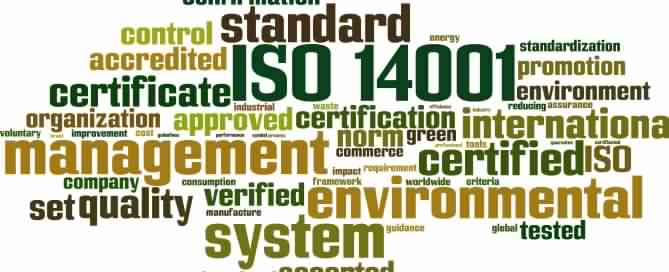ISO 14000 is a collection of standards for environmental management developed and published for organizations by the International Organization for Standardization ISO. The ISO 14000 guidelines provide a guideline and framework for organizations that want to improve and standardize their environmental management. The ISO 14000 guidelines are not designed for the enforcement or regulation of environmental laws. This standard is voluntary.
The ISO 14001 environmental management system is the most relevant standard within the ISO 14000 range. ISO 14001 outlines the requirements of an environmental control system (EMS). It can be used for small or large organizations. An EMS (environmental management system) is a systemic approach that addresses environmental issues within an enterprise.
The Plan cycle focuses on the beginning stages of ISO 14001-compliant organizations. The Check cycle addresses errors and their correction. The Do cycle deals with the implementation of ISO 14001 standards within an organization. The Review cycle involves the review of the entire process by top management. As an organization continues to find new ways to improve its EMS, the Improve cycle will never end.
Depending on the size of your organization, this process can take anywhere from several months to several decades. Implementing ISO 14001 takes less time if the organization is already ISO 9000 certificate. If an organization is compliant they can either register at a third-party registry or self-declare that they comply. Only ISO 14001 allows organizations to register or become “certified”.
Environmental Management System Certification
This standard allows companies to set up an emergency management system (EMS) that will help reduce waste, improve the efficiency of resources, and lower waste management costs.
ISO 14001 refers to the International Standard for Environmental Management Systems. The International Organisation for Standardisation (ISO), designed it to assist businesses to reduce their environmental footprint.
Any business, regardless of its sector, can implement ISO 14001 and apply to be certified for an environmental management plan. This makes ISO 14001 a very popular standard.
Why ISO 14001 Certification Should Be Considered
The ISO 14001 certification is a great way to increase your credibility and demonstrate that your product/service meets the environmental protection needs of your customers. In some industries, certification may be a requirement.
There Are Key Benefits To ISO 14001:2015 Certification
- Get cost savings –Especially in resource, waste, and energy management
- Increase efficiency throughout your product’s life cycle to decrease environmental impact
- Helping to win new customers
- Assess, monitor, and manage – your operations’ ongoing environmental impacts
- Ensuring compliance with environmental legislation to avoid prosecution and fines
How To Choose The ISO Certification Body?
Organizations in the UK can get ISO 14001 approval when they are certified by an accredited Best Practice certification agency. This body will audit your organization and give you ISO 14001 certificate. International Accreditation Forum has a list of similar international organizations.
Evaluate several certification bodies.
Make sure the certification body uses the CASCO standard and is accredited.
Accreditation does not have to be done, but it is a way of confirming competence.


